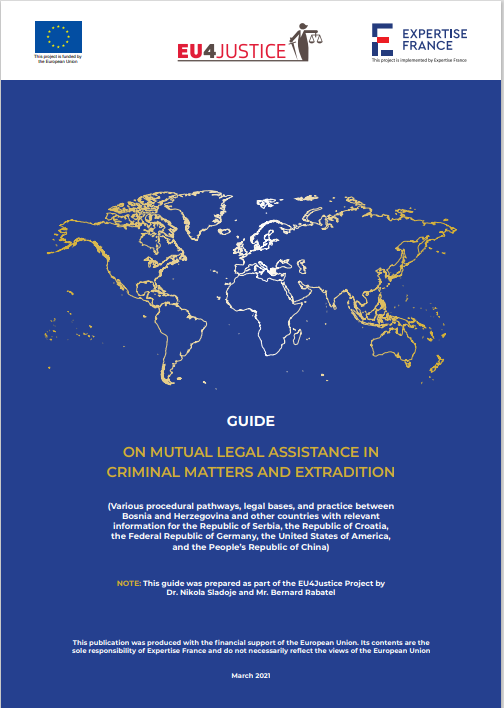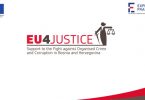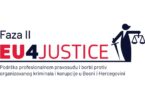Sarajevo, July 7, 2021 – The BiH High Judicial and Prosecutorial Council, at its last session, endorsed the Guide on Mutual Legal Assistance (MLA) in Criminal Matters and Extradition, which was developed within the EU funded EU4Justice project.
The Manual includes the methodology, practice, and advice for prosecutors and judges to enable them to deal more efficiently with their cases of an international character.
Mutual legal assistance in criminal matters is a process, generally governed by a treaty or authorized by domestic law, by which countries seek and provide information that may be used as evidence in criminal cases. In a world where everything is accelerating and where criminals are building increasingly trans and international networks, legal international cooperation has become more and more key to addressing these challenges.
Authors of the Manual are legal experts Bernard Rabatel, former French Prosecutor general and Liaison magistrate (US, UK) and Nikola Sladoje.
“The first and main obstacle faced by the prosecutor or investigating judge, when they need assistance from a foreign country with a legal system different from what it is at their home, is the persistence of misunderstandings created by the actual or supposed differences between the judicial systems. Language barriers do not help,” stated Rabatel.
Damien Romestant, EU4Justice Team Leader explained that the Guide outlines procedures for five countries: Serbia, Croatia, Germany, the United States of America and China. These countries were selected as BiH has the largest number of mutual legal assistance requests with these countries or because of their specificities.
After the endorsement by HJPC, the MLA Guide is included in the HJPC information system ensuring its availability to all users.
The EU4Justice: Support to the Fight against Organised Crime and Corruption in Bosnia and Herzegovina project is EU funded project focused on enhancing effectiveness, integrity and professionalism of the institutions in the Rule of Law sector; on improving the cooperation between the between prosecution and law enforcement agencies (LEAs) to increase the efficiency of investigations in organised crime and corruption cases; and to strengthen capacities regarding human resources and performance management as well as disciplinary frameworks and procedures.







